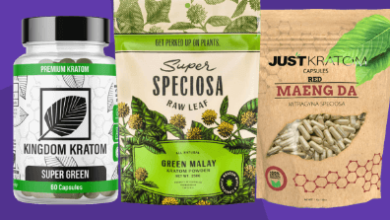The Benefits and Risks of Kratom Kava: What You Need to Know

Welcome to our latest blog post about Kratom Kava! For many years, people have been using these plants for their potential benefits. In recent times, the popularity of Kratom and Kava has grown significantly, and both are now commonly used as alternative treatments for various ailments. However, like all natural remedies, there are risks associated with them if not consumed properly. This article aims to provide you with a thorough understanding of the benefits and risks of Kratom Kava so that you can make an informed decision before using them. So buckle up and let’s dive into it!
What is Kratom?
Kratom is a plant that has been used in southeast Asia for centuries as a stimulant, tranquility-seeker, and pain reliever. It is also known by the names Thang, Ketum, Kakuam, Mitragyna Speciosa, and Biak-Biak. The leaves of the kratom tree are ground into a fine powder and used as a drug.
Kratom has been shown to have opioid-like effects and can be addictive. Kratom products are available online and in some stores. They can be purchased as capsules, pills, liquids, powders or even tree bark extract. How effective each form is remains unknown. There have not been any studies on the long-term safety of kratom use.
What are the benefits of kratom?
Kratom (Mitragyna speciosa) is a tropical tree that is native to Southeast Asia. The leaves of the tree are used as a mild stimulant and analgesic, and the bark is used as a natural pain reliever. Kratom has been found to be helpful in treating chronic pain, opioid addiction, and withdrawal symptoms. Kratom has also been shown to have anti-inflammatory properties and can improve moods and relieve anxiety symptoms. However, kratom is not without risks. Kratom can be addictive and can lead to dependence, tolerance, and withdrawal symptoms if used too frequently or in high doses. Additionally, kratom may also have adverse effects on the liver, breathing, and heart rate.
What are the risks of kratom?
In short, there is no one-size-fits-all answer to this question as the risks of kratom will vary depending on your individual situation. However, some of the risks associated with kratom include:
1) Kratom can be addictive and lead to withdrawal symptoms if you stop using it abruptly.
2) Kratom can be dangerous if taken in high doses or when used incorrectly. For example, it can interact with other medications you are taking, cause respiratory problems, or result in a coma.
3) Kratom has been linked to psychosis in some people. This means that it can trigger a temporary mental disorder that is different from normal mood swings.
How does kratom work?
Kratom is a plant native to Southeast Asia that has been used for centuries as a natural stimulant and pain reliever. It works by binding to opioid receptors in the brain, which can relieve pain and provide stimulant effects. Kratom is also known to have anti-inflammatory properties, which can help treat conditions like chronic pain and arthritis. Kratom has been linked to negative side effects, however, including addiction and withdrawal symptoms when stopped use. There are also potential risks associated with using kratom, such as not being aware of the potential for abuse and overdose. If you’re considering using kratom, it’s important to understand the risks and benefits so you can make an informed decision.
Is kratom addictive?
Kratom is a plant that comes from Southeast Asia and is used as a natural stimulant and pain reliever. Kratom has been used in traditional medicine for centuries and has been shown to have various benefits, including reducing pain, boosting energy, and improving mood. However, kratom is also addictive, which means that it can be hard to stop using it once you start.
While there isn’t yet much research on the effects of kratom addiction, studies have shown that it can be addictive in rats. It’s possible that the same could be true for humans, though more research is needed to confirm this. If you’re struggling to quit kratom use, talk to your doctor or therapist about options for managing your addiction.
How does kratom interact with other drugs?
Kratom interacts with other drugs in many ways. It can interact with prescription medications, over-the-counter medications and street drugs. Kratom can also interact with food, leading to adverse effects. Kratom is known to interact with other drugs in the following ways:
Kratom interacts with prescription medications: Kratom has been known to interact with many prescription medications. Kratom has been shown to reduce the effectiveness of some medication, leading to increased side effects. This includes painkillers, antidepressants and anxiety medication. It is important to talk to your doctor about any prescriptions you are taking, as well as any supplements or herbal remedies you are using.
Kratom interactions with over-the-counter medications: Kratom can also interact with over-the-counter medications. This includes painkillers and antihistamines. Overdose symptoms of kratom include drowsiness and dizziness. Be careful not to take more than the recommended dosage of a medication, and be sure to tell your doctor about any supplements or herbs you are using.
Kratom interactions with street drugs: Kratom can also interact with street drugs. This includes cocaine, opiates and amphetamines. Street drugs can increase the effects of kratom, leading to dangerous side effects such as overdose or addiction. It is important not mix kratom with other substances, as this could lead to harmful consequences




